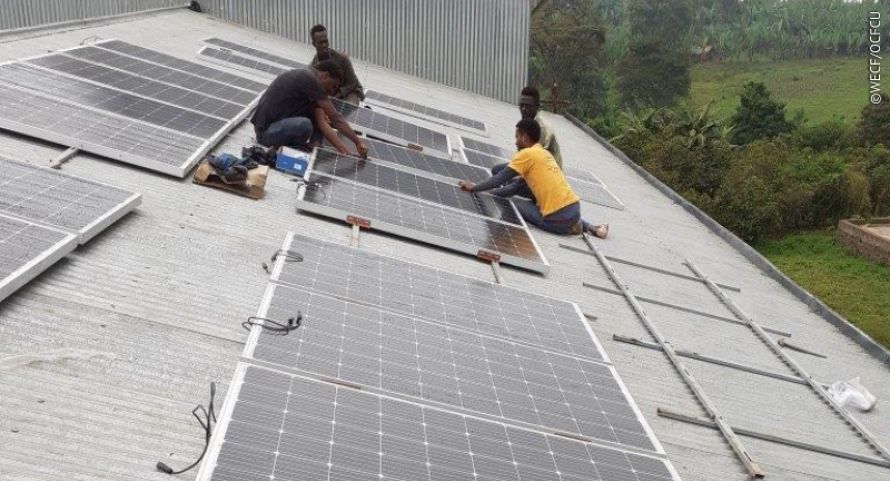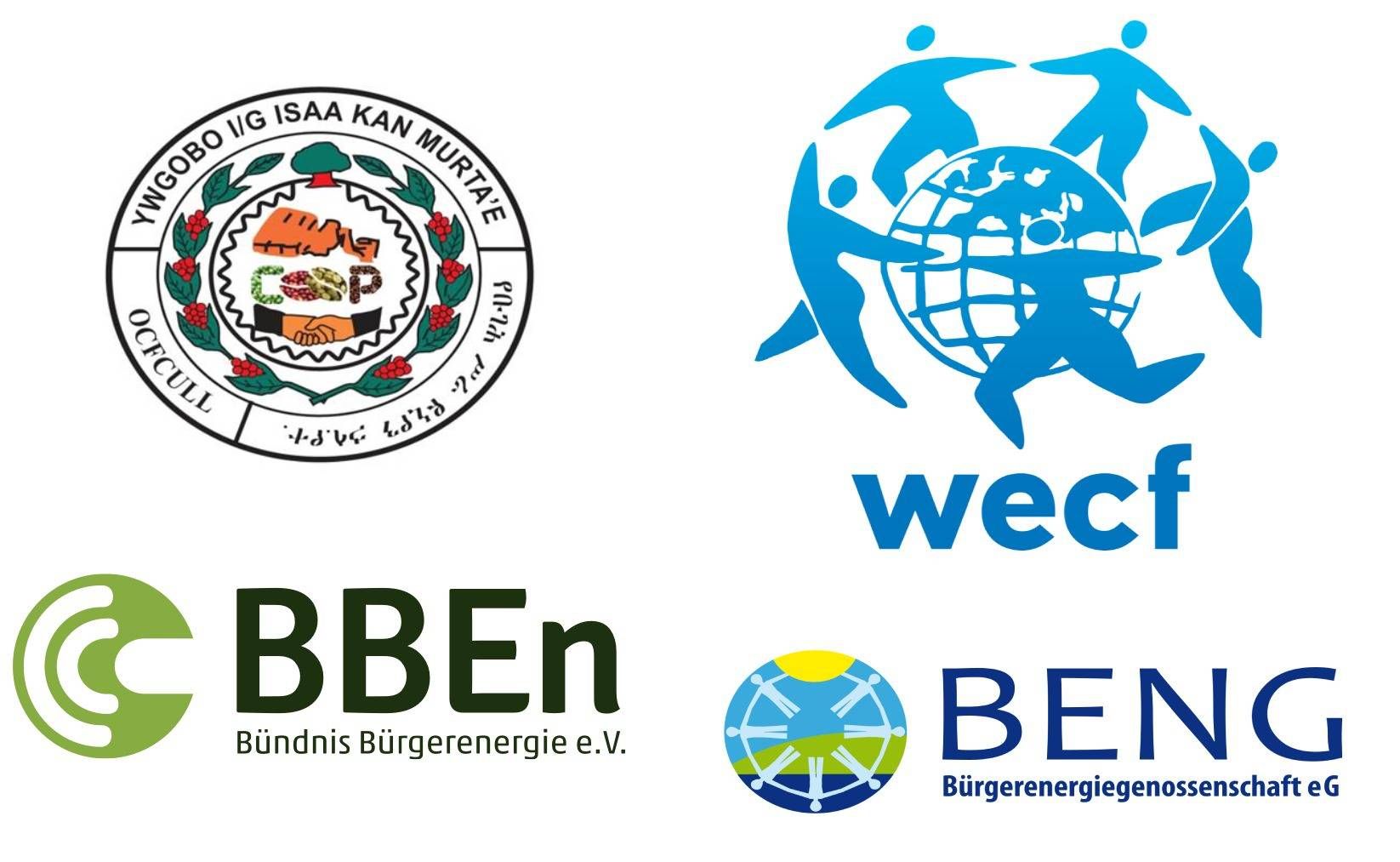Energy cooperatives to empower Ethiopian women

The Challenge
Despite an increasing electrification rate, less than half of all Ethiopians have access to electricity and only seven percent to clean cooking energy. Especially in rural areas, many people must manage without electricity and rely on paraffin, diesel, and biomass. Women and children, who are responsible for firewood and cooking, suffer the most. The government wants to ensure one hundred percent electricity supply by 2025. However, this requires decentralised isolated solutions based on renewable energies that involve the population. Energy cooperatives could boost electrification and make an important contribution to the economic empowerment of women in particular. However, this idea lies largely fallow.
The Goal
For this reason, the organisations Women Engage for a Common Future Deutschland e.V. (WECF) and the Oromia Coffee Farmers’ Cooperative Union (OCFCU) have expanded their partnership with the aim of developing a foundation plan for a gender-equitable energy cooperative in the coffee sector. Citizens are to be involved in this process and build up technical, social and methodological skills. The expertise of German partners is to be incorporated into this process.
Our Partners
The non-profit association WECF promotes women and has extensive experience in the implementation of community energy projects, especially in the establishment of energy cooperatives. In Ethiopia, WECF Deutschland e.V. has been cooperating with OCFCU since 2019. This cooperative association, founded in 1999, represents more than 400 cooperatives in the coffee sector. Since 2019, both have been implementing decentralised energy and water technologies, and now intend to develop a concept for the establishment of energy cooperatives. Additional expertise is contributed by three German partners, the company Solarpartner Süd Kienberg, the peoples’ energy cooperative BENG eG and the Bündnis Bürgerenergie BBEn e.V.
The Approach
In order to develop the concept for a gender-equitable energy cooperative, the partners follow four consecutive activities. With a digital kick-off workshop, they agree on their conceptual approach. In a second step, they want to record the different interests of the actors, as well as the needs of the people in the rural coffee sector. Thirdly, at a network meeting, the Ethiopian and German partners will exchange views on the legal, technical, social, economic and gender-specific aspects of a sustainable energy cooperative. In a concluding workshop, the participants will identify the challenges and opportunities of an energy cooperative and record them in a “foundation plan”. This should include information on technologies, business models, financing mechanisms, but also plans on how to empower women in particular.
Oromia
Energy cooperative
Local population & Women
01.01.2022-30.06.2023



